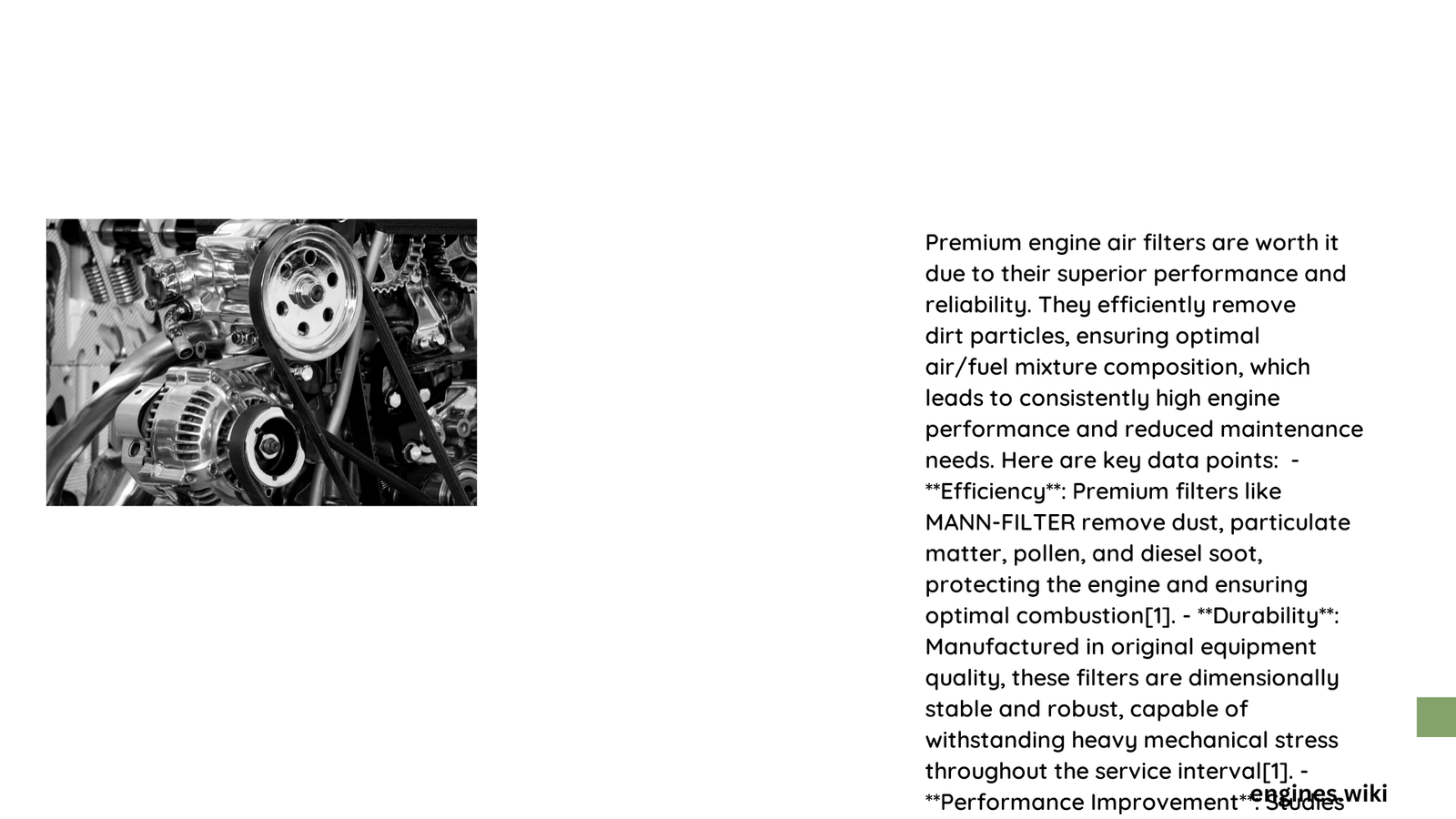Vehicle owners constantly debate whether investing in premium engine air filters delivers genuine value. Premium filters promise enhanced engine protection, potentially improved performance, and longer lifespan compared to standard options. While they cost more upfront, these specialized filters might offer subtle yet significant advantages in maintaining your vehicle’s overall health and efficiency.
What Makes Premium Engine Air Filters Different?
Are Premium Filters More Effective at Particle Filtration?
Premium engine air filters distinguish themselves through superior filtration technology. Unlike standard filters, high-end options like Hengst and Mann utilize advanced materials that capture microscopic contaminants more efficiently.
Key Filtration Advantages:
– Capture particles as small as 2.5 microns
– Enhanced synthetic media composition
– Improved airflow resistance management
How Do Costs Compare Between Standard and Premium Filters?
| Filter Type | Price Range | Typical Lifespan | Cost per Mile |
|---|---|---|---|
| Standard Filter | $5 – $20 | 5,000 – 15,000 miles | $0.001 – $0.004 |
| Premium Filter | $20 – $50 | 15,000 – 30,000 miles | $0.001 – $0.003 |
What Performance Benefits Can You Expect?
Performance improvements from premium filters are typically modest but meaningful:
– Potential horsepower increase: 1-5 HP
– Fuel efficiency improvement: 1-3%
– Enhanced engine protection
– Reduced long-term maintenance costs
Do Premium Filters Actually Protect Your Engine Better?
Premium filters offer superior engine protection through:
1. Higher-quality filtration media
2. Better particle retention capabilities
3. More robust construction
4. Enhanced durability under various driving conditions
What Factors Should You Consider Before Purchasing?
Critical Evaluation Criteria:
– Vehicle make and model compatibility
– Driving environment (urban vs. rural)
– Typical annual mileage
– Budget constraints
– Manufacturer recommendations
Can Premium Filters Save Money in the Long Run?
While initial costs are higher, premium filters can potentially reduce long-term expenses:
– Fewer frequent replacements
– Reduced engine wear
– Potential maintenance cost savings
– Extended engine component lifespan
Expert Recommendations

Automotive experts suggest evaluating your specific driving conditions before selecting an air filter. For vehicles in dusty or challenging environments, investing in a premium filter becomes more justifiable.
Practical Advice for Filter Selection
- Always check your vehicle’s manual
- Compare filter specifications
- Consider your typical driving conditions
- Balance cost with expected performance benefits
Final Thoughts
Premium engine air filters offer nuanced advantages that extend beyond simple filtration. While not a miraculous solution, they represent a strategic investment in your vehicle’s long-term health and performance.
Pro Tips
- Research specific filter brands
- Compare independent testing results
- Consult professional mechanics
- Monitor your vehicle’s performance after filter replacement
Reference:
– Consumer Reports Automotive Maintenance
– SAE International Filtration Studies
– Automotive Engineering Journal
